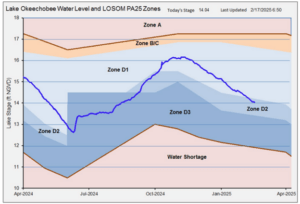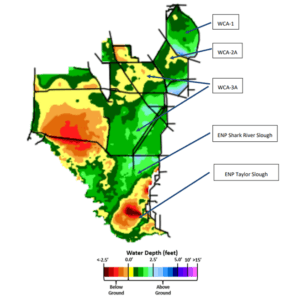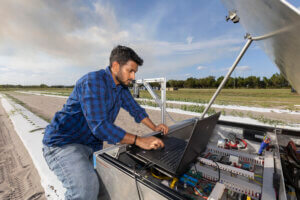February 2025 FloridAgriculture eNewsletter
At high noon on January 20th, 2025, President Donald J. Trump and Vice President J.D. Vance took the oath of office and thus, the Trump 47 administration was off and running.
In his first week back in office, President Trump has taken significant actions through executive orders and key Cabinet appointments.
In his first week, President Trump issued 35 executive orders, 12 memoranda and four proclamations, addressing various policy areas.
Notably, he signed executive orders declaring a national emergency at the U.S.-Mexico border, ending the refugee resettlement program and attempting to restrict birthright citizenship, though the latter has been temporarily halted by a federal court.
Additionally, President Trump issued an executive order recognizing only “two sexes, male and female,” affecting various policies including passports and access to single-sex spaces.
As for cabinet confirmations, the Senate has confirmed several of President Trump’s Cabinet nominees:
- Secretary of State: Marco Rubio
- Treasury Secretary: Scott Bessent
- Secretary of Defense: Pete Hegseth (confirmed by a tie-breaking vote from Vice President Vance)
- Secretary of Homeland Security: Kristi Noem
- CIA Director: John Ratcliffe
Other nominees, such as Pam Bondi for Attorney General, Doug Burgum for Secretary of the Interior and Brooke Rollins for Secretary of Agriculture have completed their confirmation hearings and are awaiting votes.
The week of January 27th, confirmation hearings were held to examine the nominations of Robert F. Kennedy Jr. for Secretary of Health and Human Services, Kashyap Patel for Director of the FBI and Tulsi Gabbard for Director of National Intelligence.
These actions and appointments reflect the administration’s priorities in areas like immigration, national security and social policy.
The newly appointed Secretary of Agriculture Brooke Rollins sat for her confirmation hearing on Thursday, January 23rd. In her hearing she highlighted:
- Trade Tariffs: Rollins indicated a willingness to implement direct payments to farmers to offset losses from proposed tariffs, similar to strategies used during Trump’s first term.
- Ethanol and Farm Subsidies: Rollins was questioned about her past leadership of the Texas Public Policy Foundation, which opposed ethanol mandates and farm subsidies. She acknowledged these positions and discussed her current views during the hearing.
- Wildfire Response: Rollins emphasized that responses to wildfires should not be influenced by politics and committed to deploying resources equally across all states.
Next, because U.S. Senator Marco Rubio was confirmed for his new role as U.S. Secretary of State, he resigned from his seat in the U.S. Senate. Florida Governor Ron DeSantis appointed Florida’s Attorney General, Ashley Moody to the vacant seat. Moody will be up for re-election in 2026 and again in 2028, if successfully re-elected.
Lastly, due to vacancies in Florida Congressional Districts 1 and 6, special elections were scheduled for the primary and general election. The primary took place on Tuesday, January 28 and the general election will take place on Tuesday, April 1.
President Trump endorsed Republican candidates Jimmy Patronis for Congressional District 1 and Randy Fine for Congressional District 6. Both are expected victors in those races.
Thank you to our Florida Farm Bureau members for their efforts and advocacy at the grassroots level. The National Affairs office looks forward to welcoming members to Washington D.C., for the annual Field to the Hill trip, April 1-3, 2025.
 The election of pork producer delegate candidates for the 2026 National Pork Producers (Pork Act) Delegate Body will take place at 10:00 a.m. on Thursday, July 24, 2025, in conjunction with a Board of Directors meeting of the Florida Pork Improvement Group at the Florida FFA Association office, 5600 SW 34th St., Gainesville, FL 32608. All Florida pork producers are invited to attend.
The election of pork producer delegate candidates for the 2026 National Pork Producers (Pork Act) Delegate Body will take place at 10:00 a.m. on Thursday, July 24, 2025, in conjunction with a Board of Directors meeting of the Florida Pork Improvement Group at the Florida FFA Association office, 5600 SW 34th St., Gainesville, FL 32608. All Florida pork producers are invited to attend.
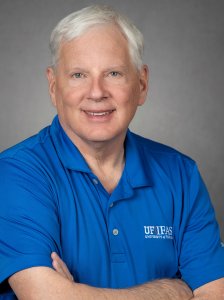 By J. Scott Angle
By J. Scott Angle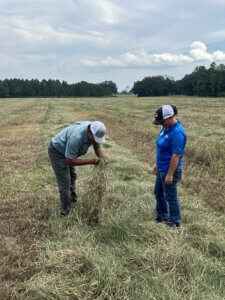 In the ongoing trial of controlled release fertilizer on hay at Lane’s farm, so far the costs aren’t worth it. Lane suspected as much beforehand. A season’s worth of data reaffirmed that. But it also set the stage for trying a lower-cost fertilizer to see if scientist and farmer can make it pencil out at harvest time.
In the ongoing trial of controlled release fertilizer on hay at Lane’s farm, so far the costs aren’t worth it. Lane suspected as much beforehand. A season’s worth of data reaffirmed that. But it also set the stage for trying a lower-cost fertilizer to see if scientist and farmer can make it pencil out at harvest time.
